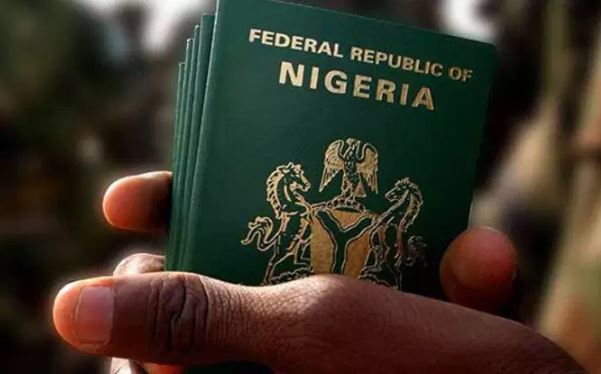How South Africa Denies Nigerians Entry Through Late Issuance Of Visa
South
Africa High Commission requires Nigerian applicants to show verifiable
return flight ticket and accommodation as part of the visa application
requirements.


File Photo
South African High Commission to Nigeria seems to have adopted a
new tactic of denying Nigerians entry into its country by waiting for a
long period of time to process their visa applications. By the time the
visa is eventually issued, the purpose of the visit must have passed.
In its visa application form, the South Africa High Commission
states that it takes between five to ten days to process visitor’s visa
application. Also, the VFS Global, the company that receives visa
applications on behalf of South Africa states on its website that
“the timelines given by South African High Commission in Nigeria for the
processing of each application is minimum 6 working days.”
But an applicant is told that it takes a minimum of 15 working days
to process the application after paying N32, 671 non-refundable fees at
the VFS Global. Again, most applicants do not get any response from
the High Commission even after the 15 working days.
South Africa High Commission requires Nigerian applicants to show
verifiable return flight ticket and accommodation as part of the visa
application requirements.As applicants are not aware of the unstated
minimum of 15 working days, they often purchase their flight tickets and
book accommodation which they may never use because the period of
processing their applications is overstretched.
The delay in visa issuance has prevented many Nigerians from
participating in international conferences taking place in South Africa.
An example is just the concluded African Investigative Journalism
Conference that took place at the University of Witwatersrand in
Johannesburg between October 28 and 31.
The South Africa High Commission is still holding the passports of
the Nigerian journalists even when the conference has been concluded
despite some of them applying for visa three weeks earlier before the
conference was due to commence.
The passport of the former editor of The ICIR, Fisayo Soyombo, who
was scheduled to speak at the conference, is still with South Africa
High Commission even though he applied for visa on time.
Theophilus Abbah, a journalist and trainer did not participate in
the conference because his passport is still with the High Commission.
This delay in issuing visa also affected Chikezie Omeje, The ICIR’s
senior investigative and data reporter who won the best fact check
prize in this year’s African Fact Checking Awards. He could not travel
to receive the prize at the ceremony in Johannesburg on October 30
because his passport is still with the High Commission.
Omeje said he applied for the visa on October 11 and even followed
up with a letter for expedited visa processing but still have not gotten
any response from the High Commission.
Similarly, Ibrahim Alawode who was the runner-up in the student
category of the award still has not seen his passport despite all his
effort to reach out to the High Commission to get his visa to travel for
the award ceremony.
A young journalist, based in Lagos, told The ICIR that she got her
visa after two weeks that the workshop she intended to travel for had
ended.
Many of the visa applicants who spoke to The ICIR on Thursday said
the pattern of delay in issuing a visa is a new practice by the South
Africa High Commission as they suggested that it could be a new tactic
of preventing Nigerians from visiting South Africa.
A staff of the VFS Global told The ICIR that delays in processing
visa application were caused by the absence of a consular officer at the
High Commission for about a month.
He said a new consular officer was posted just Thursday last week
and there was already a backlog of applications. He said during the
period without a consular officer, only emergency visa applications were
processed, like those going for medical treatment.
Several calls made by The ICIR to the South Africa High Commissions
were not answered and The ICIR reporter who visited the High Commission
was prevented from gaining access to the premises by a security agent.
George Edokpa, spokesperson of Ministry of Foreign Affairs told The
ICIR on the phone that he was not aware of the maltreatment of
Nigerians by the South Africa High Commission. He, however, referred
the reporter to the director of consular services in the ministry, whom
he said would be in a better position to provide answers.
The reporter was told at the consular department that “the director was not on seat”.
It is unclear whether the unnecessary delay in processing visa
applications by the South Africa High Commission is a deliberate policy
or temporary issue occasioned by the alleged absence of a consular
officer.
At a time that many African countries are implementing visa on
arrival for Africans as a result of the push for free trade and movement
of people in the continent, this maltreatment of Nigerians by the South
Africa High Commission appears to be an insult.
South Africa, in fact, mostly closes her door to other Africans but
more welcoming to the wider world, according to a BBC report.
“Citizens of only 15 African nations can travel to South Africa
without a visa, yet holders of 28 different European passports can
enter the country freely,” the BBC report says.
tori.ng

Comments
Post a Comment